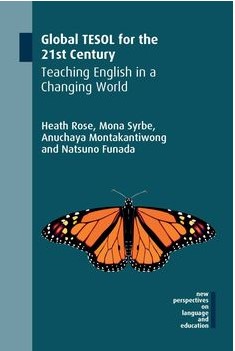Same But Different: Systems Of Smoothing Noun Entropy In Communication
The Project
Language is a defining human characteristic, and it shapes our cultures. But how does language actually work? Traditionally, people have thought that the meaning of sentences comes from the words it contains and how grammar organizes them. This view suggests that humans are born with much of their language ability, and that some language features—like grammatical gender in German—don’t really serve a purpose.
Our research challenges that idea. We argue that the main goal of communication isn’t just to transfer meaning from one person to another, but to reduce uncertainty about what someone means. From this perspective, children don’t need a perfect linguistic environment to learn a language. Instead, their learning abilities naturally tune into the patterns and rules of language.
We apply this idea to grammatical gender, which is often considered to be a redundant feature of language. We suggest that gender systems actually help people process words more efficiently. In particular, they make it easier to predict and understand nouns—the least predictable part of speech. By comparing German (which uses gender) and English (which doesn’t), we aim to show that gender systems reduce uncertainty in communication. This may help explain how all languages are structured to solve similar problems, revealing important insights into how human language works.
Resources
Research Team
External Team
More Projects
-
AVENUE: Added Value of English-medium and International University EducationMay 2026 - May 2029Increasingly, universities in non-Anglophone countries are teaching through English-medium instruction (EMI) rather than the local language or students’ first language.
-
InTRACt: Interplay of Text, Reader And Context in children’s digital reading comprehensionFebruary 2026 - February 2027As childhood literacy undergoes a major transformation, with reading increasingly moving from paper to screens, a significant gap persists between scientific research and the design of educational apps.
-
Motivation, Engagement and Achievement in Arabic as an Additional Language: An Empirical Investigation in UK Secondary SchoolsOctober 2025 - September 2026This study examines the motivational profiles of UK secondary school learners of Arabic across its multiglossic forms.
-
From the page to the stage: A feasibility study on using theatre to improve EAL children’s communicative skillsJanuary 2020 - May 2020This project explored whether drama can be used as a tool to develop the linguistic, communication, and teamwork skills of children with EAL.
-
Oral language development through drama: Practitioner needs and perspectivesSeptember 2024 - August 2025This project investigated primary school teachers’ perceptions regarding the use of drama for developing young (language) learners oral language and communication skills.
-
Motivation, Engagement and Achievement in Arabic as an Additional Language: An Empirical Investigation in UK Secondary SchoolsOctober 2024 - September 2025An empirical study into the motivation, engagement and achievement of learners of AL2 in UK secondary schools.
More News
-
 NewsNew report on educational attainment in school pupils with English as an Additional LanguageFebruary 5, 2025
NewsNew report on educational attainment in school pupils with English as an Additional LanguageFebruary 5, 2025 -
 NewsReport published today provides evidence on what influences EAL learners to mitigate language learning lossMarch 17, 2021
NewsReport published today provides evidence on what influences EAL learners to mitigate language learning lossMarch 17, 2021 -
 NewsElizabeth Wonnacott to join as Associate Professor of Applied LinguisticsApril 14, 2020
NewsElizabeth Wonnacott to join as Associate Professor of Applied LinguisticsApril 14, 2020 -
 NewsDepartment Academics And Doctoral Students Author New Book On Language Teaching In Global ContextsFebruary 20, 2020
NewsDepartment Academics And Doctoral Students Author New Book On Language Teaching In Global ContextsFebruary 20, 2020 -
 MediaDon’t leave the L1 out of English-taught programs, OUP experts warnFebruary 15, 2019
MediaDon’t leave the L1 out of English-taught programs, OUP experts warnFebruary 15, 2019
Project Details
Research Team
External Team
More Projects
-
AVENUE: Added Value of English-medium and International University EducationMay 2026 - May 2029Increasingly, universities in non-Anglophone countries are teaching through English-medium instruction (EMI) rather than the local language or students’ first language.
-
InTRACt: Interplay of Text, Reader And Context in children’s digital reading comprehensionFebruary 2026 - February 2027As childhood literacy undergoes a major transformation, with reading increasingly moving from paper to screens, a significant gap persists between scientific research and the design of educational apps.
-
Motivation, Engagement and Achievement in Arabic as an Additional Language: An Empirical Investigation in UK Secondary SchoolsOctober 2025 - September 2026This study examines the motivational profiles of UK secondary school learners of Arabic across its multiglossic forms.
-
From the page to the stage: A feasibility study on using theatre to improve EAL children’s communicative skillsJanuary 2020 - May 2020This project explored whether drama can be used as a tool to develop the linguistic, communication, and teamwork skills of children with EAL.
-
Oral language development through drama: Practitioner needs and perspectivesSeptember 2024 - August 2025This project investigated primary school teachers’ perceptions regarding the use of drama for developing young (language) learners oral language and communication skills.
-
Motivation, Engagement and Achievement in Arabic as an Additional Language: An Empirical Investigation in UK Secondary SchoolsOctober 2024 - September 2025An empirical study into the motivation, engagement and achievement of learners of AL2 in UK secondary schools.
More News
-
 NewsNew report on educational attainment in school pupils with English as an Additional LanguageFebruary 5, 2025
NewsNew report on educational attainment in school pupils with English as an Additional LanguageFebruary 5, 2025 -
 NewsReport published today provides evidence on what influences EAL learners to mitigate language learning lossMarch 17, 2021
NewsReport published today provides evidence on what influences EAL learners to mitigate language learning lossMarch 17, 2021 -
 NewsElizabeth Wonnacott to join as Associate Professor of Applied LinguisticsApril 14, 2020
NewsElizabeth Wonnacott to join as Associate Professor of Applied LinguisticsApril 14, 2020 -
 NewsDepartment Academics And Doctoral Students Author New Book On Language Teaching In Global ContextsFebruary 20, 2020
NewsDepartment Academics And Doctoral Students Author New Book On Language Teaching In Global ContextsFebruary 20, 2020 -
 MediaDon’t leave the L1 out of English-taught programs, OUP experts warnFebruary 15, 2019
MediaDon’t leave the L1 out of English-taught programs, OUP experts warnFebruary 15, 2019







